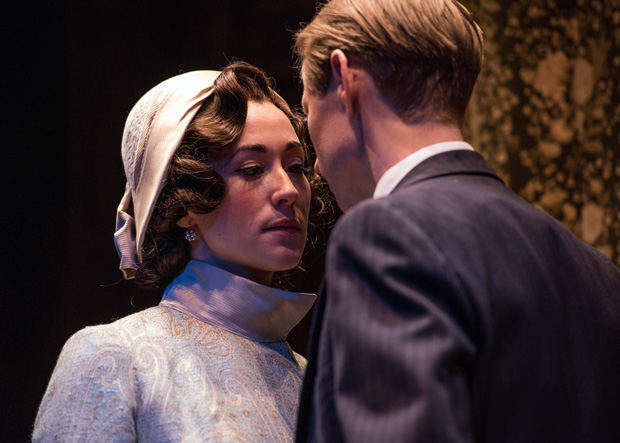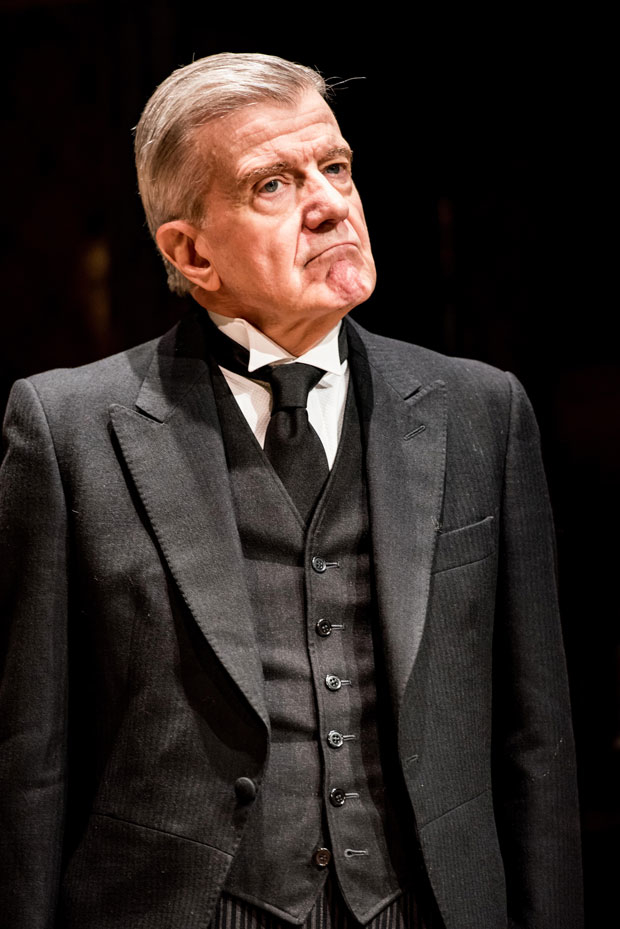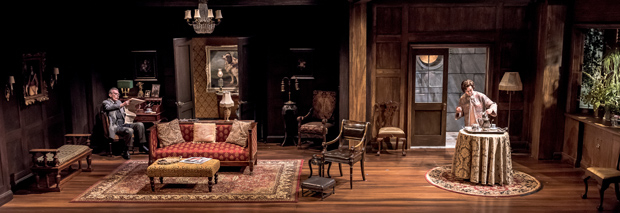Conflict Weds Passion and Politics

(© Todd Cerveris)
Founded in 1992, Mint Theater Company specializes in staging forgotten plays, usually from the early 20th century. Its productions have included dramas by Ernest Hemingway and D.H. Lawrence. Now the company turns its attention to Miles Malleson's Conflict, a 1925 comedy about a privileged British flapper whose political conscience is awoken by a progressive candidate for Parliament. Part of the Mint's mission is choosing "worthwhile" plays to breathe "new life" into, and with this production it has succeeded admirably.
Malleson, a social progressive who opposed World War I after fighting in it, was known for writing politically minded plays, and Conflict is no exception. It begins airily enough, with the young Lady Dare Bellingdon returning home around three in the morning with her beau, Sir Ronald Clive. But Ronald, like Dare's father (with whom the unmarried Dare lives), is a staunch conservative, and he soon runs for Parliament as a Tory. His opponent is the Labour Party's Tom Smith, who becomes Clive's rival not only for the district seat but for Dare's affections.
Conflict balances romance with righteousness, leading the audience gently to Smith's big ideas about social reforms and the redistribution of wealth. Dare is the conduit, her romantic interest in Smith growing as he widens her debutante's-eye-view of the world. But the play is no partisan filibuster against conservatism or income inequality. Every political question has a variety of answers, and Malleson's characters give voice to several of them. In one scene, Dare's father makes a case for capitalism as a spur to efficiency; in the next, Smith points out that if you had 100 people in a room, representing the British population, "two would be very rich, eight comfortable, 60 more or less poor, and 30 starving."

(© Todd Cerveris)
Also contributing to the feeling of plurality is the widespread strength of the acting. As Dare, Jessie Shelton lightly carries the play, and Graeme Malcolm blusters ebulliently as her father. The biggest delights, however, come from the smallest roles, including the Bellingdons' butler (a no-nonsense James Prendergast), whose emphatically delivered thank-yous turn into memorable one-liners. Another standout is Amelia White's working-class landlady, a complacently apathetic chatterbox who doesn't see the point of voting and has no qualms telling as much to her tenant, the campaigning Smith.
Director Jenn Thompson lovingly drapes the show's wit and wisdom in a period feel that never lapses. Much of the credit here also goes to her designers, all fanatics for detail. John McDermott's sumptuous set, complemented by Chris Fields's props, makes the Bellingdons' living room a temple of affluence, resplendent with leather furniture, framed portraits, and fringed lampshades. Bathed in the gentle morning sunlight distilled by Mary Louise Geiger, the room serves as a quiet reminder of why Britain's postwar upper class was so keen to hold on to its wealth.
Indeed, Conflict's design serves as a reminder of why upper classes anywhere want to hold on to what they have. In reviving this play centered on wealth disparity, Thompson strikes a theme that resonates today. Smith laments that the top 10 percent of British society "own as much as the other 90 put together." Such inequality prefigures the present-day United States, where the top one percent of households own as much as the other 90 put together. Without ignoring the complexities hidden within such imbalances, Malleson, with the help of the Mint, exposes them through a vibrantly human story.

(© Todd Cerveris)










